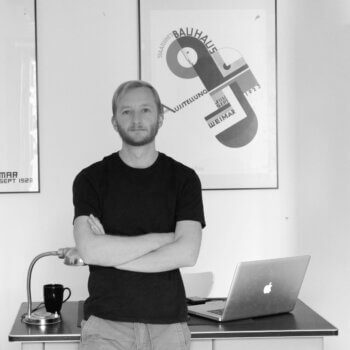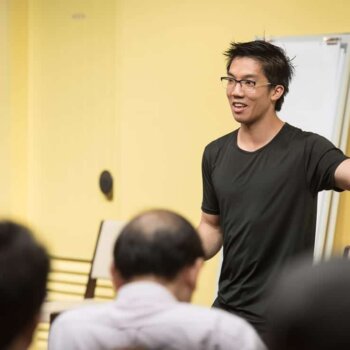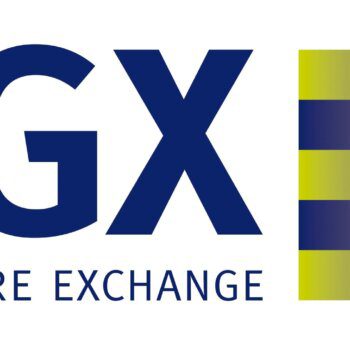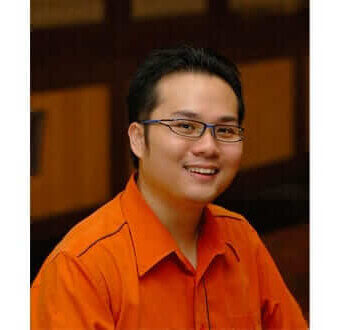Justin Wang is the co-founder of Scry. He is helping transform how the future is predicted.
What’s your story?
After my masters, I still had a few months to burn until my non-compete in the information security industry ran out. I hit up my friend and now, co-founder Jia Huang who had just left this previous AdTech startup to start a new business. We were bouncing around ideas, and talk turned to some research and after a bit of digging, we realised that the results were there. So, after a few increasingly sophisticated rounds of modelling, we realised that we had a shot with our envisaged business use case and Scry was born.
What excites you most about your industry?
I think that within the broader space of prediction markets, the thing that excites me is the fact that no one has come up with a dominant design yet in this space; nothing really has captured the public’s imagination and scaled beyond a few niche audiences.
What’s your connection to Asia?
Born and bred in Singapore – aside from some time in Australia where I did my degrees. Our startup is based in Singapore, we graduated from an accelerator in Hong Kong, and part of our staff hail from Vietnam!
Favourite city in Asia for business and why?
I may be biased when I say this, Singapore. While it may be far from perfect, I think that Singapore has a fair but competitive business landscape.
What’s the best piece of advice you ever received?
As trite as it may seem, it would be to put myself in someone else’s shoes. I think that far too often, we neglect that there is a spectrum of human responses to the same stimuli. We mask our ignorance and shield our opinions with phrases like ‘logically speaking’ – but in reality, all we are doing is wilfully disregarding our shameful ‘unknown-unknowns’ and labelling a mass of human experience that has formed an opposing opinion as ‘irrelevant.’
Who inspires you?
Anyone who does honest, hard work. I have nothing but the highest esteem, and draw the greatest of strength from seeing people work, and enjoy their work, without the need for prevarication or sycophancy. They are the modest heroes of every age.
What have you just learnt recently that blew you away?
“Social Jet Lag” – a phenomenon that results from the incongruence between an individual’s latent circadian rhythm and the schedules imposed by his or her societal obligations (be it work, socialisation, academic study, etc). “Social Jet Lag” has recently been correlated strongly with academic performance, with students who prefer later schedules, performing significantly worse in standard academic timetables than students who prefer earlier schedules.
This research resonates with me as it goes quite some way in explaining the perplexing difference in performance between my compulsory education in Singapore, and my undergraduate/postgraduate studies – where the bulk of my classes were held in the evenings, and my time was my own, to get work done.
If you had your time again, what would you do differently?
Be educated, on a ‘late chronotype,’ type schedule.
How do you unwind?
Time with those closest to me, or maths rock on my headphones if I am alone.
Favourite Asian destination for relaxation? Why?
Japan during winter, in an onsen whilst snowflakes float languidly down, all around me.
Everyone in business should read this book:
‘I think you’ll find it’s a bit more complicated than that’ by Ben Goldacre, a bit of a left field recommendation but it expounds upon how much spin, and ignorance driven by spin, that circulates around us. Too much of the world around us has been forced into false dichotomies, into trendy little soundbites, where all you need is a confident voice that cherrypicks evidence to fit your narrative. Nuance and context is lost, as is the ability to discern between the shades of gray.
Shameless plug for your business:
Scry is building a two-sided market to predict the future. On one side of the market, we are building on emerging research on cognition and judgement that has uncovered the existence of latently prescient individuals; these individuals were found over a 5-year geopolitical prediction competition, where they consistently beat out the rest – even intelligence experts by a staggering margin of 30%.
We are taking what those researchers have found, to not only find more of these people across the world, but to give others the opportunity to be trained to think like them as well.
On the other side, we are serving a need that our own market surveys have revealed: over 96% of managers and business owners across the Western hemisphere say that they are experiencing a crisis of confidence when it comes to making strategic decisions for their organisation. They blame their woes on the poor quality of information they have access to, typically, newspapers, renowned experts in the industry, and TV news networks. What Scry is going to serve up is a no-fluff probabilistic estimate of the outcomes of future events; no prevaricating and hedging with “maybes,” “probably-s,” or “likely-s.”
Tying it altogether is machine learning. We are using it to advance the state of the art; both to identify positive traits that can be passed on through training to our predictor user base, and to boost the accuracy of the predictions served to our subscribers.
Ultimately, we want to build enough supply and demand in this space that a marketplace to connect organisations with competent predictors of the future becomes a viable prospect.
How can people connect with you?
Through LinkedIn: https://www.linkedin.com/in/justin-wang-49879b135/
Or my e-mail at: [email protected]
—
This interview is part of the ‘Callum Connect’ series of more than 500 interviews
Callum Laing is an entrepreneur and investor based in Singapore. He has previously started,
built and sold half a dozen businesses and is now a Partner at Unity-Group Private Equity and Co-Founder of The Marketing Group PLC. He is the author two best selling books ‘Progressive Partnerships’ and ‘Agglomerate’.
Connect with Callum here:
twitter.com/laingcallum
linkedin.com/in/callumlaing
Download free copies of his books here: www.callumlaing.com
































